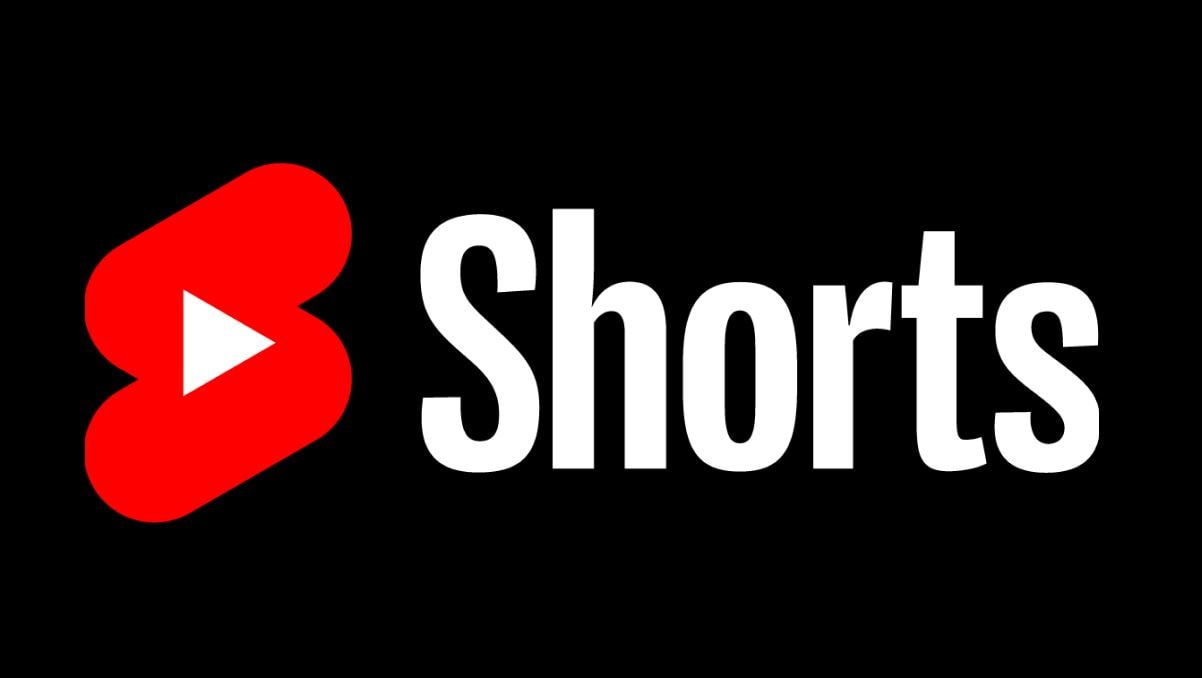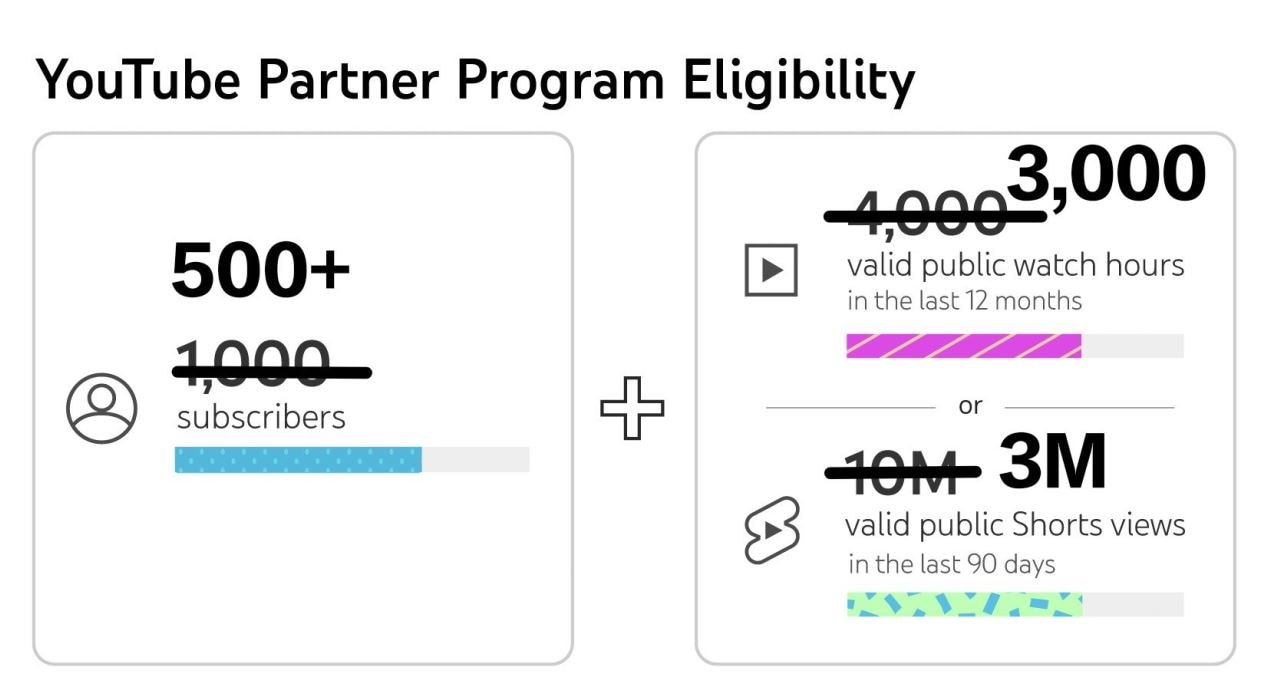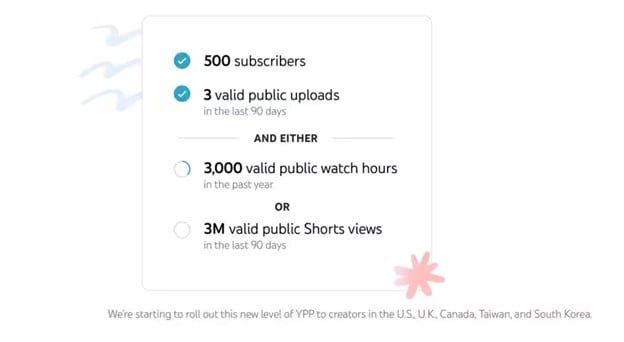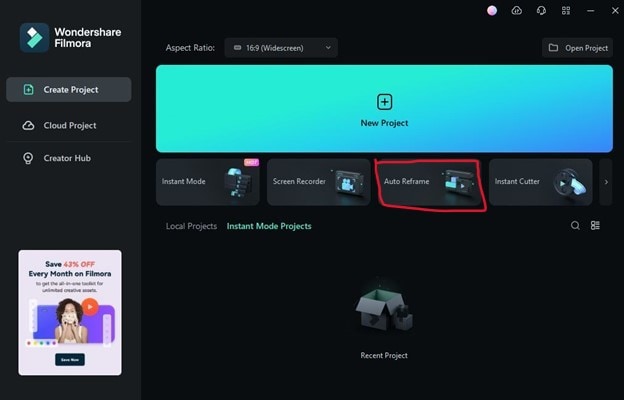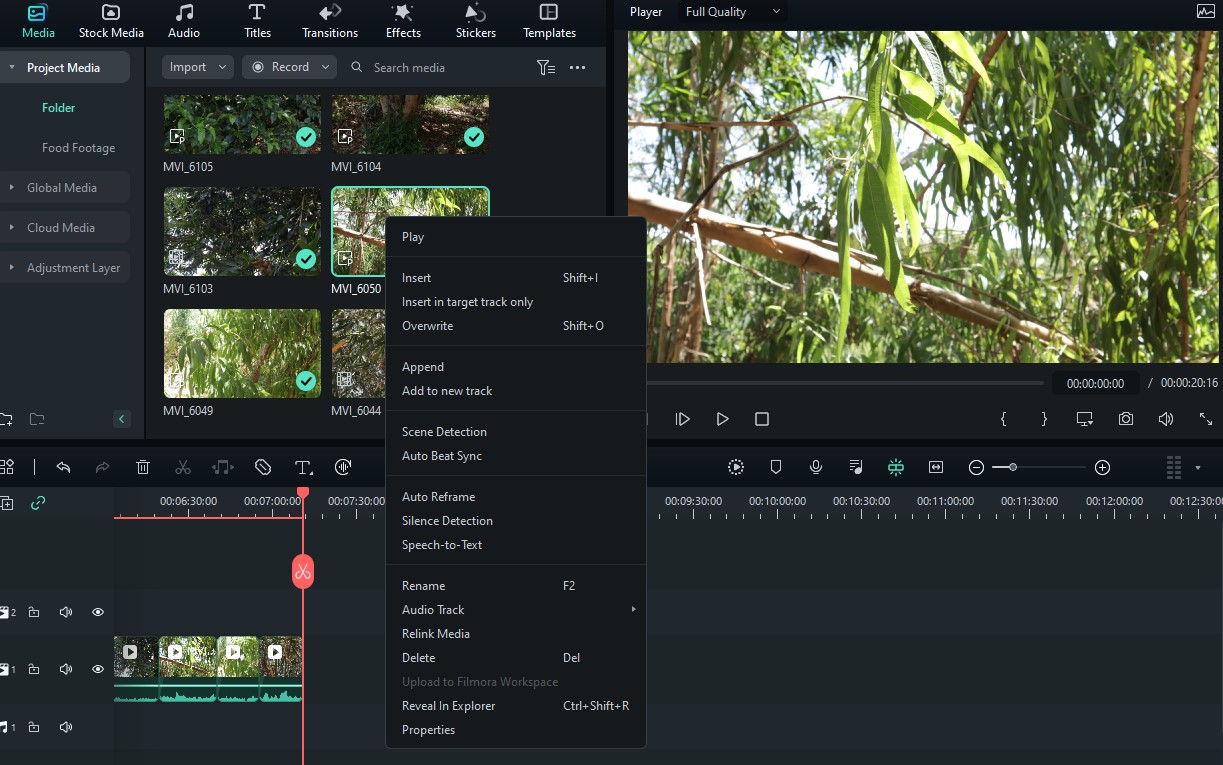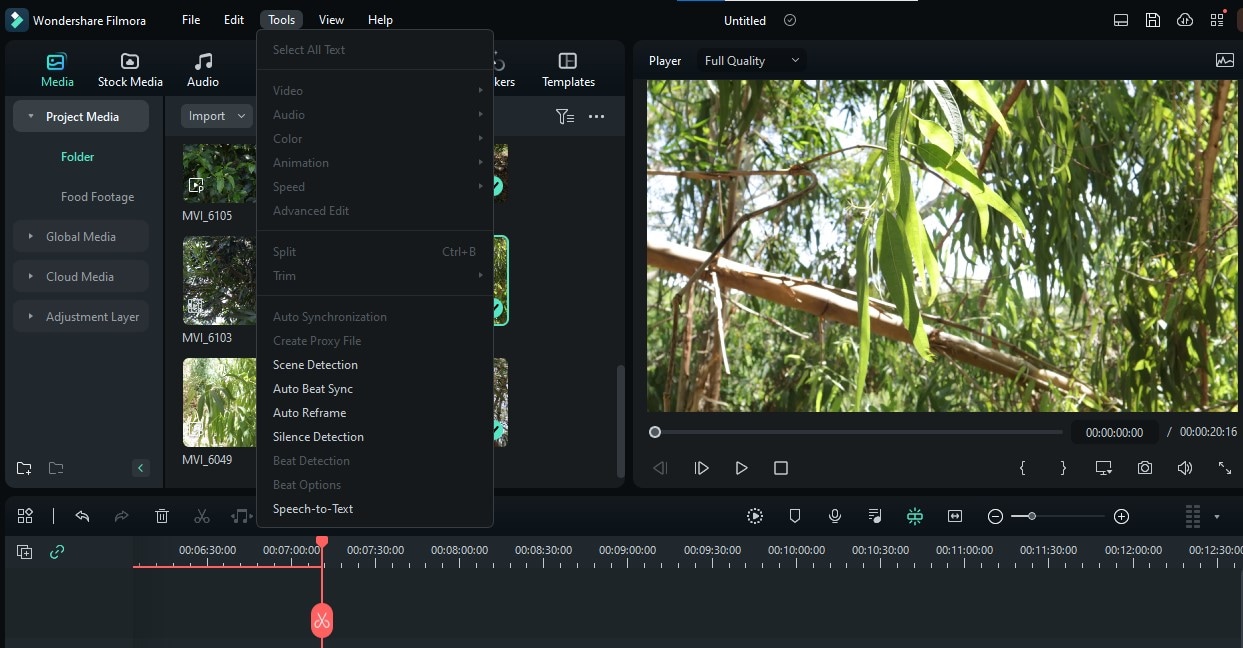:max_bytes(150000):strip_icc()/GettyImages-157187140-37e3901e6d024481b1ea394bff30cd84.jpg)
"Decoding Earnings for Content Producers on Short-Form Platform"

Decoding Earnings for Content Producers on Short-Form Platform
YouTube Shorts have become a craze in the recent past as creators try to get the best out of them. These are short, vertical videos that are 60 seconds long. Originally a way of YouTube attempting to compete with TikTok, Shorts have become a household name. However, are YouTube shorts monetized? Can you get paid for YouTube shorts? The increasing interest in monetizing Shorts has inspired many creators working on their video creation. This article answers the question of can YouTube Shorts be monetized and explains how the revenue-sharing model works.
YouTube Shorts Editor A cross-platform helps creators edit the vertical videos quickly and easily!
Free Download Free Download Learn More
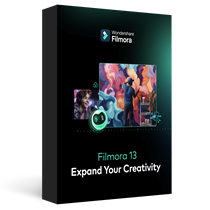
Part 1. Unveiling the Mystery of YouTube Shorts Revenue Sharing
YouTube launched the Shorts platform in 2021, which gained popularity within a short period. By the end of the first year, some videos had racked up more than half a billion views and counties. This begged the question: can you get paid from YouTube shorts?
Yes, YouTube updated its Partner Program, allowing the revenue-sharing model to benefit Shorts creators. The platform pools all the money it gets from advertisers every month from the Shorts feeds. It then shares that money with creators based on the number of views. Since the launch of this program in February 2023, the previous YouTube Shorts Fund became defunct.
The ad revenue-sharing model on YouTube Shorts may seem complex, but let’s break it down
- Every month YouTube pools all the revenue it generates from ads that appear in the Shorts feed.
- YouTube calculates that is going to the Creators Pool. A chuck of this money goes towards paying for songs used in YouTube Shorts. For instance, only a third of the ad revenue generated from a Shorts goes to the Creator Pool if it used two songs while the rest goes to paying for the music.
- YouTube divides the Creator pool depending on the number of views they contributed. If a creator generated 5% of the Shorts views during a period, they are assigned 5% of the Creator Pool.
- From that amount, YouTube keeps 55% of its share while you get paid the remaining 45%. If a creator’s 5% amounted to $800, then they will receive $360.
So, is YouTube shorts monetized? Yes, the ads-sharing model defines the amount of money a creator can earn from Shorts every month. Depending on the number of views generated, high-performing Shorts can bring in a huge amount of money.
Part 2. YouTube Shorts Monetization: Eligibility Criteria and Earnings Potential
YouTube Shorts provides creators with an exceptional way of making extra income. Let’s have a look at what it takes and what the numbers say:
Eligibility Criteria
If you are wondering, can I monetize YouTube shorts? To start earning ad revenue from Shorts, you need to be part of the YouTube Partner Program (YPP) This is the gateway to YouTube monetization opportunities. With the latest YouTube shorts monetization 2023 policy, the platform lowered the eligibility criteria.
To be eligible to the YPP, you will need:
- At least 500 Subscribers
- At least 3,000 valid public hours in the last 12 months, or
- At least 3M valid public Shorts views in the last 90 days
This means that your YouTube channel must have gained some traction before monetizing your shorts. The following YouTube short monetization 2023 requirements are also needed:
- Live in a region where the YPP is available
- Comply with YouTube’s channel monetization policies
- Have no Community Guidelines strikes on your channel
- Have an active AdSense account
- Have 2-step verification turned on for your Google account
How Much Can You Earn With Shorts
YouTube Shorts have the potential to make a huge amount of money for creators. In fact, YouTube monetize Shorts in a quite generous way. Here are a few examples to give you an idea of the numbers:
- James Seo (573,000 subscribers) - Earned $445.09 from 10.3 million Shorts views
- Riley Lemon (84,000 subscribers) - Earned $76.23 from 1.9 million Shorts views
- Matthew King (212,000 subscribers) – Earned $163.73 from 4.2 million Shorts views
- Hassan Khadair (2.1 million subscribers) – Earned $872.14 from 22 million Shorts views
Part 3. How to Start Earning from YouTube Shorts
Eligible creators start earning from YouTube Shorts when they opt-in to the program. You need to make sure you are eligible and agree to start receiving revenue from your creations.
Are You Eligible for YouTube Shorts Earnings?
Shorts creators growing their channel and are yet to meet the minimum requirements can track their eligibility status by selecting “Notify me when I’m eligible” in YouTube Studio’s Earn section.
When you become eligible, follow these steps to apply for the YPP program:
- Sign in to YouTube on a computer or the YouTube Studio app on a mobile
- Click on your profile picture, and choose YouTube Studio
- Click Earn on the left menu, then select Apply
- Click Start to review your eligibility and accept the base terms
- Click Start to set up an AdSense account. You may also choose to link an existing active one.
- Your application will be in Progress in the Get Reviewed step.
Once you have completed these steps, your YouTube Channel will be reviewed. You can expect to hear a decision within a month of enrolling you in the program.
How to opt in for YouTube Shorts Monetization
After being approved and enrolled in the YPP program, you need to opt in to monetize your channel. Remember that you will not be automatically signed up for the ad revenue-sharing model. Here are a few more steps you need to take:
- Sign in to YouTube Studio
- Select Earn in the left menu
- Click Get Started for every module to review and accept their terms
- Accept the Base Terms and the Shorts Monetization Module to monetize Shorts
Once your Shorts are monetized, track the progress and amount of money earned through YouTube Analytics.
Other Ways to Monetize YouTube Shorts
The YPP program is the only ad-based monetization option for YouTube Shorts. However, there are other ways of earning:
- Selling Subscription Memberships: Turn your YouTube to membership and charge monthly payments in exchange for perks like badges and exclusive content.
- Monetize Livestreams: Features such as super stickers and super chat allow creators to make money when fans pay to send highlighted messages.
- Selling Merchandise and Products: Make additional income by selling branded merchandise like apparel or product lines in your content niche.
- Secure Paid Brand Partnerships: Interacting directly with brands and negotiating sponsorship deals.
- Join an Affiliate Program: An affiliate program will pay you revenue associated with clicks to links hosted on your channel.
Part 4. Edit Your YouTube Videos to Shorts with Wondershare Filmora
To earn more from your YouTube Shorts, you need quality content that keeps your viewers entertained. With Shorts having a limit of 60 seconds, you want to make sure that you cover the most essential footage. Wondershare Filmora is a versatile video editing software that helps creators edit their vertical videos quickly and easily. The mobile app is specifically great for editing shorts on the go:
Free Download For Win 7 or later(64-bit)
Free Download For macOS 10.14 or later
Editing your videos with Filmora is quite straightforward. One of the features that work well for YouTube shorts is the Auto Reframe.
Auto Reframe
The Auto Reframe feature allows creators to resize videos automatically with no editing skills needed. This is a great tool for converting your horizontal YouTube videos to Shorts format. It also boosts your potential audience while saving you precious time and effort you would have used editing. To use this feature, choose any of the following options:
1. Open Filmora and Select Auto Reframe
After opening Filmora, head over to the main interface. You will find the Auto Reframe option on the right side. Click on it to open the reframing feature.
2. Launch Directly from the Video
Click File, followed by Import Media. Select the file that you gave imported in the timeline and right-click on it. Then select Auto Reframe.
3. Use the Tools Option
You may also use the Auto Reframe feature by clicking on the Tools feature on the top menu bar. Then click on Auto Reframe.
Other Filmora Features for Editing Shorts
- Split Screen Video Editor – A choice of pre-made templates to create split-screen videos instantly.
- Add Text to Video – Directly add texts to your videos, including subtitles and captions.
- Text To Speech – Instantly convert your text files to voice and introduce more elements that will enrich your Shorts video.
Conclusion
YouTube Short’s revenue-sharing programs offer a great opportunity for creators specializing in short-form content to earn money on the platform. Once eligible for the YPP program, you can start earning a nice cash bonus monthly. However, you will need to create quality content that keeps your audience entertained and engaged. We recommend using Wondershare Filmora to edit your Shorts and make them more relatable to the audience,
Free Download Free Download Learn More

Part 1. Unveiling the Mystery of YouTube Shorts Revenue Sharing
YouTube launched the Shorts platform in 2021, which gained popularity within a short period. By the end of the first year, some videos had racked up more than half a billion views and counties. This begged the question: can you get paid from YouTube shorts?
Yes, YouTube updated its Partner Program, allowing the revenue-sharing model to benefit Shorts creators. The platform pools all the money it gets from advertisers every month from the Shorts feeds. It then shares that money with creators based on the number of views. Since the launch of this program in February 2023, the previous YouTube Shorts Fund became defunct.
The ad revenue-sharing model on YouTube Shorts may seem complex, but let’s break it down
- Every month YouTube pools all the revenue it generates from ads that appear in the Shorts feed.
- YouTube calculates that is going to the Creators Pool. A chuck of this money goes towards paying for songs used in YouTube Shorts. For instance, only a third of the ad revenue generated from a Shorts goes to the Creator Pool if it used two songs while the rest goes to paying for the music.
- YouTube divides the Creator pool depending on the number of views they contributed. If a creator generated 5% of the Shorts views during a period, they are assigned 5% of the Creator Pool.
- From that amount, YouTube keeps 55% of its share while you get paid the remaining 45%. If a creator’s 5% amounted to $800, then they will receive $360.
So, is YouTube shorts monetized? Yes, the ads-sharing model defines the amount of money a creator can earn from Shorts every month. Depending on the number of views generated, high-performing Shorts can bring in a huge amount of money.
Part 2. YouTube Shorts Monetization: Eligibility Criteria and Earnings Potential
YouTube Shorts provides creators with an exceptional way of making extra income. Let’s have a look at what it takes and what the numbers say:
Eligibility Criteria
If you are wondering, can I monetize YouTube shorts? To start earning ad revenue from Shorts, you need to be part of the YouTube Partner Program (YPP) This is the gateway to YouTube monetization opportunities. With the latest YouTube shorts monetization 2023 policy, the platform lowered the eligibility criteria.
To be eligible to the YPP, you will need:
- At least 500 Subscribers
- At least 3,000 valid public hours in the last 12 months, or
- At least 3M valid public Shorts views in the last 90 days
This means that your YouTube channel must have gained some traction before monetizing your shorts. The following YouTube short monetization 2023 requirements are also needed:
- Live in a region where the YPP is available
- Comply with YouTube’s channel monetization policies
- Have no Community Guidelines strikes on your channel
- Have an active AdSense account
- Have 2-step verification turned on for your Google account
How Much Can You Earn With Shorts
YouTube Shorts have the potential to make a huge amount of money for creators. In fact, YouTube monetize Shorts in a quite generous way. Here are a few examples to give you an idea of the numbers:
- James Seo (573,000 subscribers) - Earned $445.09 from 10.3 million Shorts views
- Riley Lemon (84,000 subscribers) - Earned $76.23 from 1.9 million Shorts views
- Matthew King (212,000 subscribers) – Earned $163.73 from 4.2 million Shorts views
- Hassan Khadair (2.1 million subscribers) – Earned $872.14 from 22 million Shorts views
Part 3. How to Start Earning from YouTube Shorts
Eligible creators start earning from YouTube Shorts when they opt-in to the program. You need to make sure you are eligible and agree to start receiving revenue from your creations.
Are You Eligible for YouTube Shorts Earnings?
Shorts creators growing their channel and are yet to meet the minimum requirements can track their eligibility status by selecting “Notify me when I’m eligible” in YouTube Studio’s Earn section.
When you become eligible, follow these steps to apply for the YPP program:
- Sign in to YouTube on a computer or the YouTube Studio app on a mobile
- Click on your profile picture, and choose YouTube Studio
- Click Earn on the left menu, then select Apply
- Click Start to review your eligibility and accept the base terms
- Click Start to set up an AdSense account. You may also choose to link an existing active one.
- Your application will be in Progress in the Get Reviewed step.
Once you have completed these steps, your YouTube Channel will be reviewed. You can expect to hear a decision within a month of enrolling you in the program.
How to opt in for YouTube Shorts Monetization
After being approved and enrolled in the YPP program, you need to opt in to monetize your channel. Remember that you will not be automatically signed up for the ad revenue-sharing model. Here are a few more steps you need to take:
- Sign in to YouTube Studio
- Select Earn in the left menu
- Click Get Started for every module to review and accept their terms
- Accept the Base Terms and the Shorts Monetization Module to monetize Shorts
Once your Shorts are monetized, track the progress and amount of money earned through YouTube Analytics.
Other Ways to Monetize YouTube Shorts
The YPP program is the only ad-based monetization option for YouTube Shorts. However, there are other ways of earning:
- Selling Subscription Memberships: Turn your YouTube to membership and charge monthly payments in exchange for perks like badges and exclusive content.
- Monetize Livestreams: Features such as super stickers and super chat allow creators to make money when fans pay to send highlighted messages.
- Selling Merchandise and Products: Make additional income by selling branded merchandise like apparel or product lines in your content niche.
- Secure Paid Brand Partnerships: Interacting directly with brands and negotiating sponsorship deals.
- Join an Affiliate Program: An affiliate program will pay you revenue associated with clicks to links hosted on your channel.
Part 4. Edit Your YouTube Videos to Shorts with Wondershare Filmora
To earn more from your YouTube Shorts, you need quality content that keeps your viewers entertained. With Shorts having a limit of 60 seconds, you want to make sure that you cover the most essential footage. Wondershare Filmora is a versatile video editing software that helps creators edit their vertical videos quickly and easily. The mobile app is specifically great for editing shorts on the go:
Free Download For Win 7 or later(64-bit)
Free Download For macOS 10.14 or later
Editing your videos with Filmora is quite straightforward. One of the features that work well for YouTube shorts is the Auto Reframe.
Auto Reframe
The Auto Reframe feature allows creators to resize videos automatically with no editing skills needed. This is a great tool for converting your horizontal YouTube videos to Shorts format. It also boosts your potential audience while saving you precious time and effort you would have used editing. To use this feature, choose any of the following options:
1. Open Filmora and Select Auto Reframe
After opening Filmora, head over to the main interface. You will find the Auto Reframe option on the right side. Click on it to open the reframing feature.
2. Launch Directly from the Video
Click File, followed by Import Media. Select the file that you gave imported in the timeline and right-click on it. Then select Auto Reframe.
3. Use the Tools Option
You may also use the Auto Reframe feature by clicking on the Tools feature on the top menu bar. Then click on Auto Reframe.
Other Filmora Features for Editing Shorts
- Split Screen Video Editor – A choice of pre-made templates to create split-screen videos instantly.
- Add Text to Video – Directly add texts to your videos, including subtitles and captions.
- Text To Speech – Instantly convert your text files to voice and introduce more elements that will enrich your Shorts video.
Conclusion
YouTube Short’s revenue-sharing programs offer a great opportunity for creators specializing in short-form content to earn money on the platform. Once eligible for the YPP program, you can start earning a nice cash bonus monthly. However, you will need to create quality content that keeps your audience entertained and engaged. We recommend using Wondershare Filmora to edit your Shorts and make them more relatable to the audience,
Building Engaging Learning Experiences: YouTube as Your Classroom Screen
Easy Ways to Make a Great Educational Video for YouTube

Marion Dubois
Oct 26, 2023• Proven solutions
YouTube is an app that makes it easy for teachers to carry out their work efficiently and conveniently. A teacher should start a YouTube channel because it is beneficial to their students and themselves. The materials or content dished on these channels helps give lessons and instructions in the absence of the teacher, give a detailed explanation and trigger the students’ interest.
Also, it archives all the lessons for a long time and makes them easily accessible by both the present, past, and future students. Students can quickly go back for a review for upcoming exams. Through feedbacks or comments, teachers can provide answers to students with the problem of clarity.
A teacher needs to know what an educational video is, what makes an excellent educational video, and how to make an educational video for YouTube before opening a YouTube channel. Now, let’s delve into it!
Part 1. What’s an Educational Video?
From the name “educational video,” you can coin out that it is a video made for the sole purpose of educating or passing out knowledge for the sake of learning. The primary purpose of these videos is to teach an audience about a particular problem or important topics they want to learn about.
Sometimes brands use this method to advertise their brand while being a source of information.
Part 2. What Makes a Good Educational Video?
An excellent educational video aids the learning process. It triggers learners in analyzing and evaluating concepts provided by the video. Videos are great educational tools that most teachers must adopt due to their role in facilitating the learning process.
To make a good educational video, you should keep the following points in mind:
- Keep your students engaged
An excellent educational video should be eye catchy and exciting to get your student’s undivided attention. You can achieve it in any way, one of which is that you need to put yourself into the teaching mode, which means that you should give out the impression of your excitement for the course content you are talking about. Ask them questions, let them feel involved in the process. Please don’t go ahead talking with a cold tune. It makes them tired of listening or seeing the video.
- Be sure to maintain a right-size of video length
It’s better shorter than longer. Have you ever seen a boring, long movie? It’s almost the same feeling you get seeing a long educational video.
The video should be straightforward to leverage the advantage of this form of learning. One needs to make this video of the right size for easy assimilation by the learner. Depending on the course topic, your video can be between 2 - 20 minutes long.
Most importantly, don’t try to do much and use more straightforward, understandable concepts.
- Stay focused
Making your videos focused and not running around many things helps it pass the information that plays a good role in video length management and engagement. Videos that try to divert from the topic may end up not hitting the nail on the head and not accomplishing their purpose.
- Center your interest on the student’s needs
Any educational content should be centered to meet the needs of the students. That goes beyond creating content, but covers the entirety of satisfying the needs of your learners.
Part 3. How to Make a Great Educational Video for YouTube?
The best and most recommendable video maker for making a great educational video is Wondershare Filmora.It is a video maker that enables you to create videos with effects like transition, filters, motion elements, and titles on your video.
Color grading and speed control of each clip on your video are possible using Filmora. You can apply other features like screen record, split-screen options, audio ducking, keyframing, motion tracking and more with an easy-to-use interface to fit the student’s interest.
To make a great educational video for YouTube, you can achieve this using Filmora. Follow the steps below.
Step 1. Launch Filmora and select the aspect ratio
Launch Filmora by double-clicking on the icon, and start working on a new project by selecting project aspect ratio.
Step 2. Create a new project and import footage
Click the “New Project” icon on the program’s welcome screen and wait for some time for the editor to load.
Then, move to choose your desired aspect ratio and click on the import footage icon located at the left corner of the video editor.
Step 3. Organize your project material
At the bottom of the “My Project” tab, click on “add a new folder”. In that new folder, arrange the footage alphabetically. This reduces time spent browsing files and increases efficiency.
Step 4. Preview and edit your video
Press the play icon to preview the video clip. Trim your video clip to the desired video size by dragging the end of the video clip left or right.
Then add customized text and add effects to the video if needed. An amazing effect can be added to each clip of the video to create an outstanding video.
Step 5. Export and share the video
When you’re okay with the already made video, click the Export button. Choose the YouTube option to upload it easily from the Filmora program.
Conclusion
Without a doubt, the process of creating an educational video requires that you pay attention to some things to create an excellent educational video that achieves the learning goal. Once you’ve learned what it means to make an educational video, how to go about it wouldn’t be something to worry about.
Thus, with the steps mentioned above, how to make a great educational video for YouTube has been answered. Now, you can go ahead and make amazing educational videos by yourself.

Marion Dubois
Marion Dubois is a writer and a lover of all things video.
Follow @Marion Dubois
Marion Dubois
Oct 26, 2023• Proven solutions
YouTube is an app that makes it easy for teachers to carry out their work efficiently and conveniently. A teacher should start a YouTube channel because it is beneficial to their students and themselves. The materials or content dished on these channels helps give lessons and instructions in the absence of the teacher, give a detailed explanation and trigger the students’ interest.
Also, it archives all the lessons for a long time and makes them easily accessible by both the present, past, and future students. Students can quickly go back for a review for upcoming exams. Through feedbacks or comments, teachers can provide answers to students with the problem of clarity.
A teacher needs to know what an educational video is, what makes an excellent educational video, and how to make an educational video for YouTube before opening a YouTube channel. Now, let’s delve into it!
Part 1. What’s an Educational Video?
From the name “educational video,” you can coin out that it is a video made for the sole purpose of educating or passing out knowledge for the sake of learning. The primary purpose of these videos is to teach an audience about a particular problem or important topics they want to learn about.
Sometimes brands use this method to advertise their brand while being a source of information.
Part 2. What Makes a Good Educational Video?
An excellent educational video aids the learning process. It triggers learners in analyzing and evaluating concepts provided by the video. Videos are great educational tools that most teachers must adopt due to their role in facilitating the learning process.
To make a good educational video, you should keep the following points in mind:
- Keep your students engaged
An excellent educational video should be eye catchy and exciting to get your student’s undivided attention. You can achieve it in any way, one of which is that you need to put yourself into the teaching mode, which means that you should give out the impression of your excitement for the course content you are talking about. Ask them questions, let them feel involved in the process. Please don’t go ahead talking with a cold tune. It makes them tired of listening or seeing the video.
- Be sure to maintain a right-size of video length
It’s better shorter than longer. Have you ever seen a boring, long movie? It’s almost the same feeling you get seeing a long educational video.
The video should be straightforward to leverage the advantage of this form of learning. One needs to make this video of the right size for easy assimilation by the learner. Depending on the course topic, your video can be between 2 - 20 minutes long.
Most importantly, don’t try to do much and use more straightforward, understandable concepts.
- Stay focused
Making your videos focused and not running around many things helps it pass the information that plays a good role in video length management and engagement. Videos that try to divert from the topic may end up not hitting the nail on the head and not accomplishing their purpose.
- Center your interest on the student’s needs
Any educational content should be centered to meet the needs of the students. That goes beyond creating content, but covers the entirety of satisfying the needs of your learners.
Part 3. How to Make a Great Educational Video for YouTube?
The best and most recommendable video maker for making a great educational video is Wondershare Filmora.It is a video maker that enables you to create videos with effects like transition, filters, motion elements, and titles on your video.
Color grading and speed control of each clip on your video are possible using Filmora. You can apply other features like screen record, split-screen options, audio ducking, keyframing, motion tracking and more with an easy-to-use interface to fit the student’s interest.
To make a great educational video for YouTube, you can achieve this using Filmora. Follow the steps below.
Step 1. Launch Filmora and select the aspect ratio
Launch Filmora by double-clicking on the icon, and start working on a new project by selecting project aspect ratio.
Step 2. Create a new project and import footage
Click the “New Project” icon on the program’s welcome screen and wait for some time for the editor to load.
Then, move to choose your desired aspect ratio and click on the import footage icon located at the left corner of the video editor.
Step 3. Organize your project material
At the bottom of the “My Project” tab, click on “add a new folder”. In that new folder, arrange the footage alphabetically. This reduces time spent browsing files and increases efficiency.
Step 4. Preview and edit your video
Press the play icon to preview the video clip. Trim your video clip to the desired video size by dragging the end of the video clip left or right.
Then add customized text and add effects to the video if needed. An amazing effect can be added to each clip of the video to create an outstanding video.
Step 5. Export and share the video
When you’re okay with the already made video, click the Export button. Choose the YouTube option to upload it easily from the Filmora program.
Conclusion
Without a doubt, the process of creating an educational video requires that you pay attention to some things to create an excellent educational video that achieves the learning goal. Once you’ve learned what it means to make an educational video, how to go about it wouldn’t be something to worry about.
Thus, with the steps mentioned above, how to make a great educational video for YouTube has been answered. Now, you can go ahead and make amazing educational videos by yourself.

Marion Dubois
Marion Dubois is a writer and a lover of all things video.
Follow @Marion Dubois
Marion Dubois
Oct 26, 2023• Proven solutions
YouTube is an app that makes it easy for teachers to carry out their work efficiently and conveniently. A teacher should start a YouTube channel because it is beneficial to their students and themselves. The materials or content dished on these channels helps give lessons and instructions in the absence of the teacher, give a detailed explanation and trigger the students’ interest.
Also, it archives all the lessons for a long time and makes them easily accessible by both the present, past, and future students. Students can quickly go back for a review for upcoming exams. Through feedbacks or comments, teachers can provide answers to students with the problem of clarity.
A teacher needs to know what an educational video is, what makes an excellent educational video, and how to make an educational video for YouTube before opening a YouTube channel. Now, let’s delve into it!
Part 1. What’s an Educational Video?
From the name “educational video,” you can coin out that it is a video made for the sole purpose of educating or passing out knowledge for the sake of learning. The primary purpose of these videos is to teach an audience about a particular problem or important topics they want to learn about.
Sometimes brands use this method to advertise their brand while being a source of information.
Part 2. What Makes a Good Educational Video?
An excellent educational video aids the learning process. It triggers learners in analyzing and evaluating concepts provided by the video. Videos are great educational tools that most teachers must adopt due to their role in facilitating the learning process.
To make a good educational video, you should keep the following points in mind:
- Keep your students engaged
An excellent educational video should be eye catchy and exciting to get your student’s undivided attention. You can achieve it in any way, one of which is that you need to put yourself into the teaching mode, which means that you should give out the impression of your excitement for the course content you are talking about. Ask them questions, let them feel involved in the process. Please don’t go ahead talking with a cold tune. It makes them tired of listening or seeing the video.
- Be sure to maintain a right-size of video length
It’s better shorter than longer. Have you ever seen a boring, long movie? It’s almost the same feeling you get seeing a long educational video.
The video should be straightforward to leverage the advantage of this form of learning. One needs to make this video of the right size for easy assimilation by the learner. Depending on the course topic, your video can be between 2 - 20 minutes long.
Most importantly, don’t try to do much and use more straightforward, understandable concepts.
- Stay focused
Making your videos focused and not running around many things helps it pass the information that plays a good role in video length management and engagement. Videos that try to divert from the topic may end up not hitting the nail on the head and not accomplishing their purpose.
- Center your interest on the student’s needs
Any educational content should be centered to meet the needs of the students. That goes beyond creating content, but covers the entirety of satisfying the needs of your learners.
Part 3. How to Make a Great Educational Video for YouTube?
The best and most recommendable video maker for making a great educational video is Wondershare Filmora.It is a video maker that enables you to create videos with effects like transition, filters, motion elements, and titles on your video.
Color grading and speed control of each clip on your video are possible using Filmora. You can apply other features like screen record, split-screen options, audio ducking, keyframing, motion tracking and more with an easy-to-use interface to fit the student’s interest.
To make a great educational video for YouTube, you can achieve this using Filmora. Follow the steps below.
Step 1. Launch Filmora and select the aspect ratio
Launch Filmora by double-clicking on the icon, and start working on a new project by selecting project aspect ratio.
Step 2. Create a new project and import footage
Click the “New Project” icon on the program’s welcome screen and wait for some time for the editor to load.
Then, move to choose your desired aspect ratio and click on the import footage icon located at the left corner of the video editor.
Step 3. Organize your project material
At the bottom of the “My Project” tab, click on “add a new folder”. In that new folder, arrange the footage alphabetically. This reduces time spent browsing files and increases efficiency.
Step 4. Preview and edit your video
Press the play icon to preview the video clip. Trim your video clip to the desired video size by dragging the end of the video clip left or right.
Then add customized text and add effects to the video if needed. An amazing effect can be added to each clip of the video to create an outstanding video.
Step 5. Export and share the video
When you’re okay with the already made video, click the Export button. Choose the YouTube option to upload it easily from the Filmora program.
Conclusion
Without a doubt, the process of creating an educational video requires that you pay attention to some things to create an excellent educational video that achieves the learning goal. Once you’ve learned what it means to make an educational video, how to go about it wouldn’t be something to worry about.
Thus, with the steps mentioned above, how to make a great educational video for YouTube has been answered. Now, you can go ahead and make amazing educational videos by yourself.

Marion Dubois
Marion Dubois is a writer and a lover of all things video.
Follow @Marion Dubois
Marion Dubois
Oct 26, 2023• Proven solutions
YouTube is an app that makes it easy for teachers to carry out their work efficiently and conveniently. A teacher should start a YouTube channel because it is beneficial to their students and themselves. The materials or content dished on these channels helps give lessons and instructions in the absence of the teacher, give a detailed explanation and trigger the students’ interest.
Also, it archives all the lessons for a long time and makes them easily accessible by both the present, past, and future students. Students can quickly go back for a review for upcoming exams. Through feedbacks or comments, teachers can provide answers to students with the problem of clarity.
A teacher needs to know what an educational video is, what makes an excellent educational video, and how to make an educational video for YouTube before opening a YouTube channel. Now, let’s delve into it!
Part 1. What’s an Educational Video?
From the name “educational video,” you can coin out that it is a video made for the sole purpose of educating or passing out knowledge for the sake of learning. The primary purpose of these videos is to teach an audience about a particular problem or important topics they want to learn about.
Sometimes brands use this method to advertise their brand while being a source of information.
Part 2. What Makes a Good Educational Video?
An excellent educational video aids the learning process. It triggers learners in analyzing and evaluating concepts provided by the video. Videos are great educational tools that most teachers must adopt due to their role in facilitating the learning process.
To make a good educational video, you should keep the following points in mind:
- Keep your students engaged
An excellent educational video should be eye catchy and exciting to get your student’s undivided attention. You can achieve it in any way, one of which is that you need to put yourself into the teaching mode, which means that you should give out the impression of your excitement for the course content you are talking about. Ask them questions, let them feel involved in the process. Please don’t go ahead talking with a cold tune. It makes them tired of listening or seeing the video.
- Be sure to maintain a right-size of video length
It’s better shorter than longer. Have you ever seen a boring, long movie? It’s almost the same feeling you get seeing a long educational video.
The video should be straightforward to leverage the advantage of this form of learning. One needs to make this video of the right size for easy assimilation by the learner. Depending on the course topic, your video can be between 2 - 20 minutes long.
Most importantly, don’t try to do much and use more straightforward, understandable concepts.
- Stay focused
Making your videos focused and not running around many things helps it pass the information that plays a good role in video length management and engagement. Videos that try to divert from the topic may end up not hitting the nail on the head and not accomplishing their purpose.
- Center your interest on the student’s needs
Any educational content should be centered to meet the needs of the students. That goes beyond creating content, but covers the entirety of satisfying the needs of your learners.
Part 3. How to Make a Great Educational Video for YouTube?
The best and most recommendable video maker for making a great educational video is Wondershare Filmora.It is a video maker that enables you to create videos with effects like transition, filters, motion elements, and titles on your video.
Color grading and speed control of each clip on your video are possible using Filmora. You can apply other features like screen record, split-screen options, audio ducking, keyframing, motion tracking and more with an easy-to-use interface to fit the student’s interest.
To make a great educational video for YouTube, you can achieve this using Filmora. Follow the steps below.
Step 1. Launch Filmora and select the aspect ratio
Launch Filmora by double-clicking on the icon, and start working on a new project by selecting project aspect ratio.
Step 2. Create a new project and import footage
Click the “New Project” icon on the program’s welcome screen and wait for some time for the editor to load.
Then, move to choose your desired aspect ratio and click on the import footage icon located at the left corner of the video editor.
Step 3. Organize your project material
At the bottom of the “My Project” tab, click on “add a new folder”. In that new folder, arrange the footage alphabetically. This reduces time spent browsing files and increases efficiency.
Step 4. Preview and edit your video
Press the play icon to preview the video clip. Trim your video clip to the desired video size by dragging the end of the video clip left or right.
Then add customized text and add effects to the video if needed. An amazing effect can be added to each clip of the video to create an outstanding video.
Step 5. Export and share the video
When you’re okay with the already made video, click the Export button. Choose the YouTube option to upload it easily from the Filmora program.
Conclusion
Without a doubt, the process of creating an educational video requires that you pay attention to some things to create an excellent educational video that achieves the learning goal. Once you’ve learned what it means to make an educational video, how to go about it wouldn’t be something to worry about.
Thus, with the steps mentioned above, how to make a great educational video for YouTube has been answered. Now, you can go ahead and make amazing educational videos by yourself.

Marion Dubois
Marion Dubois is a writer and a lover of all things video.
Follow @Marion Dubois
Also read:
- [New] 2024 Approved Harmonizing Your Music A YouTube Playlist Journey
- [New] 2024 Approved Navigate to Visibility A Compreayer of YouTube Live Imagery Standards
- [New] 2024 Approved Streamlined Steps to Record on Your iPad Screen
- [New] 7 Star-Rated Apps for Effortless YouTube LIVE Broadcast From iPhone and Android
- [New] Dissecting Biggest FIFA Footage Trends in Graphs
- 2024 Approved Discover 7 Unforgettable Marriage Videos on Vimeo
- Addressing Win-Based Office Glitches Effectively
- In 2024, Elevating the Chilly Selecting Five Warm Video Backgrounds
- In 2024, Exclusive Guide to the Best Chrome Extensions for FB Videos
- In 2024, The Ultimate Compilation of HTML5's Best Video Tools
- Title: Decoding Earnings for Content Producers on Short-Form Platform
- Author: Kevin
- Created at : 2025-01-25 00:01:38
- Updated at : 2025-01-29 16:41:37
- Link: https://youtube-videos.techidaily.com/decoding-earnings-for-content-producers-on-short-form-platform/
- License: This work is licensed under CC BY-NC-SA 4.0.
